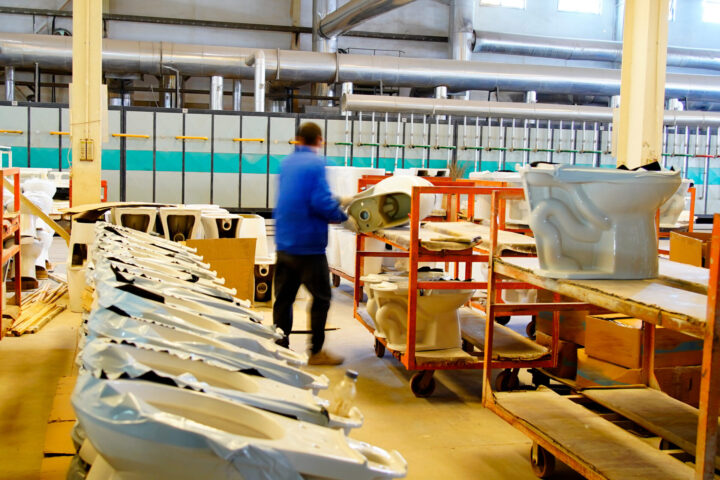As a wave of return-to-office initiatives sweeps across industries, companies are investing heavily in on-site perks – from wellness rooms and subsidised lunches to upgraded office spaces. But in our rush to reimagine the office experience, we risk overlooking the people who never left it in the first place – the field teams who keep the business moving, often without the same recognition or support. That gap needs urgent attention, not just for fairness, but for the future of our workforce.
For field-based teams, such as engineers, contractors, utilities workers, and mobile technicians, there’s no hybrid option. They do long hours on the road, have extended time away from home, and in comparison to their office-working colleagues – many are receiving little by way of perks and incentives.
And while office workers benefit from renewed investment from their employers into their wellbeing, field workers are still navigating outdated travel policies, out-of-pocket expenses, and inconsistent support. It’s a growing disconnect, and one that organisations can no longer afford to ignore.
As leaders, we have a responsibility to ensure every part of our workforce feels valued and supported. That means recognising the divide and taking active steps to close it.
A growing gap
The divide between office and field-based workers isn’t just a matter of perks – it’s a matter of principle.
We’re seeing a widening gap between how office workers and mobile workers are treated, and field staff are starting to take notice. Office-based teams have seen renewed focus on workplace culture and employee experience but, for field teams, it can feel like the experience of work hasn’t changed at all.
If one part of the workforce is offered daily wellbeing initiatives, while another is left juggling late-night travel and personal expenses, the message is clear: some roles matter more than others.
This imbalance is directly affecting recruitment and retention. Travel-heavy roles are becoming harder to fill, and keeping hold of skilled workers is increasingly difficult when the job feels unsupported and underappreciated. These frustrations are costing businesses both talent and continuity – it isn’t just a logistical issue, it’s a strategic one.
Fairness looks different in the field
No one expects yoga sessions on construction sites, but fairness doesn’t have to mean copying office perks. It means designing support that reflects the realities of field-based work, and works for staff who are regularly on the road. At Roomex we work with organisations whose teams are frequently on the move. We’ve seen first-hand how smart, simple changes can significantly improve the field worker experience, and make them feel appreciated by their employer again.
Here’s what that looks like in practice:
· Putting wellbeing into travel: Establishing a wellbeing policy for field staff makes it easier to ensure wellbeing is being considered across the business. This could include guidelines that enforce avoiding back-to-back site visits and allowing time to rest when booking travel, and ensuring accommodation is clean, comfortable, and safe – rather than just the cheapest option available. Field staff don’t expect luxury, but they do expect safety, dignity, and the ability to recover between demanding shifts.
· Flexibility where it matters: Travel-heavy roles come with unpredictable hours and logistical demands, so businesses need to be mindful of late-night travel or weekend returns. Sometimes, giving the option of an extra night’s stay to avoid burnout will be more appreciated by workers than any office perk.
· Removing financial friction: One of the biggest points of friction we see between field workers and their employers is when staff have to fund work travel upfront, to claim back later. Tools like prepaid travel cards and digital booking platforms reduce stress, improve transparency, and eliminate the need for staff to fund business travel out of their own pockets.
Rethinking the narrative around field work
Field roles are still too often seen as tough, temporary, or transactional – something to “get through” rather than legitimate careers to progress within. But that’s outdated thinking.
These are essential, skilled jobs – and increasingly difficult to replace. They deserve to be positioned by everyone as meaningful, long-term career paths, and not just seen as short-term stepping stones. That starts with investment in training, wellbeing, and leadership development, and making mobile workers part of internal culture and comms. It also comes from employers ensuring the conditions their field staff are operating within are realistic and desirable, for the long term.
It also means HR and leadership teams taking the time to understand the pressures of life on the road and responding accordingly.
One workforce, one culture
Ultimately, it comes down to culture. If your employee experience only caters to those within your headquarters’ four walls, then you don’t have a truly inclusive workplace; you have a two-tier system.
The future of work is hybrid, but not just in the sense of remote vs office-based. It’s about building a culture that bridges the gap between desked and deskless – which includes everyone, no matter where or how they work.
Progressive employers are working to close this gap. They’re making wellbeing tools mobile-accessible, checking in regularly with travelling teams, and putting consistent travel policies in place. In the most forward-thinking companies, no one is left scrambling to book a last-minute room, travelling without breaks or waiting weeks to be reimbursed.
These types of employers are ensuring every employee feels seen, supported and set up for success – regardless of their role within the company, or where they work most of the time.
Final thoughts
Office perks might be making the headlines, but for field-based workers, it’s the basics that matter most: fair treatment, decent travel support, and being recognised as part of the team.
The risk isn’t that we give field staff fewer perks, it’s that we exclude them from the conversation altogether. In doing so, companies risk losing some of the most skilled, loyal, and essential workers in their businesses.
Workplace culture doesn’t stop at the office door. If we want to keep essential workers engaged, supported, and proud of what they do, it’s time to start showing it.
Garry Moroney is CEO at workforce travel and accommodation provider, Roomex

















